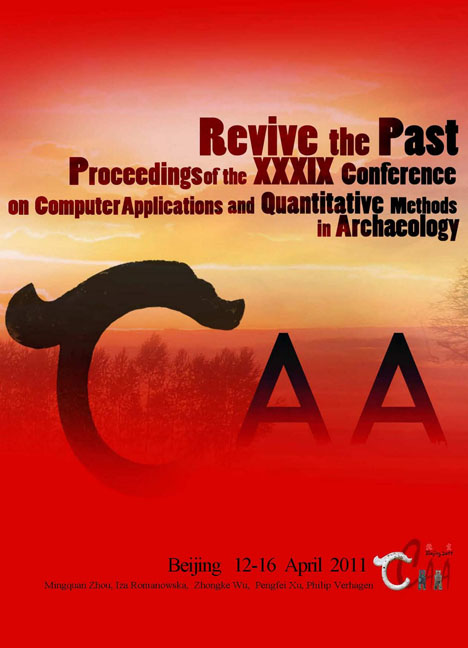 Revive the Past
Revive the Past A Union of Dispersed Knowledge and People: Achievements of Archaeo-GIS Workshop 2007–10
Published online by Cambridge University Press: 23 June 2021
Summary
Abstract:
Since the introduction of Geographic Information Systems (GIS) into archaeology in the 1980s, most of the problems that archaeologists encountered in the course of utilising the geospatial technologies had not been explained anywhere and thus had to be resolved only through a redundant process of trial and error. In order to share knowledge and experience on GIS applications to archaeology, a self-motivated group of Japanese researchers inaugurated an online-based academic forum, Archaeo-GIS Workshop (AGW), in 2007. This paper reviews concepts and activities of the AGW in the past three years and then discusses current agendas and future tasks. The AGW employs two complementary communication channels: online social networking services and offline hands-on workshops. The administration and operation of the AGW relies exclusively on the spirit of volunteerism and financial self-sufficiency. The AGW welcomes wider audiences across disciplinary boundaries and encouraged more members to actively participate in the events and projects.
Key Words: Geographical Information Systems (GIS), Online-Based Academic Forum, Hands-On Workshop, Sharing Know-Hows, Interdisciplinary Collaboration
Introduction
Background
Over decades, we have obtained an increasing amount of archaeological data, both in analogue and digital formats, from excavations and post-excavation processes. Archaeological spatial analyses have employed a variety of digital data sources, including satellite imagery (Parcak 2009) and topographical, geological, hydrological (Harrower 2010), and climate maps (Banks et al. 2008). Since their introduction in the early 1980s, Geographical Information Systems (GIS) have provided sophisticated means to integrate, manage, manipulate, and analyse these data to visualise spatio-temporal patterns of material culture (Conolly and Lake 2006).
Problems
In Japan, knowledge and experience with practical applications of GIS to archaeological research have been dispersed across academia. This is partly because there are very few opportunities for Japanese archaeologists to take a training course in GIS and otherwise they have to teach themselves. It also means that they have to purchase, install, and operate a GIS package for themselves. However, there is a dilemma here that commercial GIS suites are generally too expensive for students and tight-budget researchers on one hand and charge-free opensource GIS programs are too difficult to utilise in some cases on the other hand.
- Type
- Chapter
- Information
- Revive the PastProceedings of the 39th Conference of Computer Applications and Quantitative Methods in Archaeology, pp. 334 - 342Publisher: Amsterdam University PressPrint publication year: 2012
- 1
- Cited by
